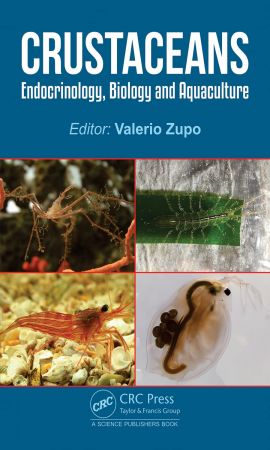
English | 2022 | ISBN: 978-0367420703 | 309 pages | True PDF | 13.7 MB
Anyone who attempts to study crustaceans soon realizes that there are many science fields involved. As a major subphylum of Arthropods―the largest phylum in the animal kingdom―crustaceans exhibit an extraordinary diversity of taxa, shapes, physiology and styles of life. These invertebrates play key ecological roles in all aquatic environments, while only a few species are adapted to sub-aerial and humid environments. Their evolutionary success is not only due to a wide set of morphological and biological adaptations, but also because of some key features, e.g., their peculiar endocrinology. In addition, crustaceans are characterized by chemical and optical sensors deserving attention because they play important biological roles, linked to chemical ecology issues, and their functioning is impaired by global changes and ocean acidification. Several crustaceans have critical roles in aquatic ecology (e.g., copepods in the plankton, amphipods and isopods in the benthos). Select species are technologically important as "models" for scientific research. Furthermore, aquaculture of several decapod crustaceans is important for providing high protein products to meet the need for nutrition. Understanding the physiology and ecology of crustaceans is important to fulfill these diverse purposes and practical applications.
In this book, leading world scientists have pooled their excellence to provide vibrant and expert views of fundamental biological and physiological mechanisms involving crustaceans. To this end, a comprehensive view of crustacean endocrinology and reproductive ecology is provided, along with information about their molecular physiology, adaptations, aquaculture and welfare. In particular, we attempted to span the breadth of their adaptations, presenting behavioral and physiological peculiarities, considering key groups of crustaceans to describe general features and global biodiversity. This book is offered as a tool for students and scientists in various fields of physiological, ecological, biotechnological and aquacultural research.
Links are Interchangeable - No Password - Single Extraction



